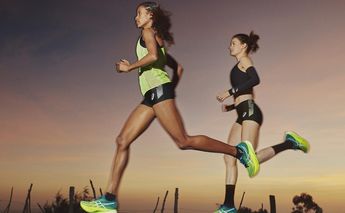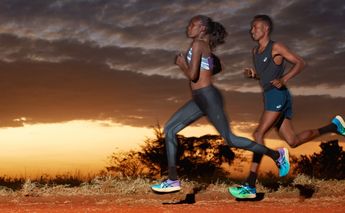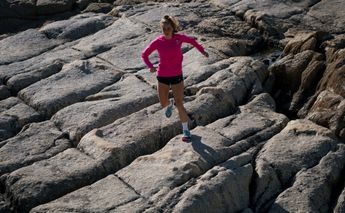The Totalsports Two Oceans Marathon is not too far away. You're going to need ENERGY for training and race day.
In fact, you cannot run or race without it, which is why an array of nutrition products have been created to give you a digestible jolt of energy, whether from caffeine, sugars, other carbs, or a combination of these.
Yes, there are countless opinions out there, and in the end, you need to experiment and use what (and how) works for you. In terms of liquid, solid, and gel energy boosts, below follows some broad overviews.
Firstly (and we cannot stress this enough) test what is best for you and in which quantities during training and long runs, so that all trial-and-error is concluded before race day.
ENERGY DRINKS
Energy beverages range from age-old choices like caffeine-rich coffee and tea to energy drinks in bottles, cans or a mixable powder that combine caffeine, sugars and herbal additives. Beverages are more easily digestible than bars and gels because their effect is almost immediate, gels may take 10 or 15 minutes to kick in and the energy from energy bar ingredients can be delayed for up to two to three hours. Many runners also find that energy drinks are less likely to produce stomach cramps. They're not as easy to transport while running, however, so you must decide whether the jolt of an energy drink outweighs the burden of carrying it in a bottle or backpack.
It's worth the effort on warm days and on any long runs because they double up as a source of energy and hydration. In addition, an energy drink before running may be beneficial. For example, caffeinated drinks like coffee, tea or hot chocolate, these can give you a boost if they're consumed in the last half-hour before running. Just don't drink too much or you'll require a mid-run "nature break."
*LEARN MORE ABOUT CAFFEINE AND HOW IT AFFECTS YOU, HERE
ENERGY BARS
Most energy bars have real-food ingredients not found in drinks or gels, such as grains and fruit, which makes them more nutritious. But as a solid food, they aren't as easily digestible as a beverage or gel.
For that reason, energy bars are best consumed at least a half-hour before running or racing, giving your digestive system a head start, or after a long run or race for refueling. If you're keeping a slow run/walk pace on a long training run or in a half-marathon or marathon, however, digestibility poses less of a problem, so in those situations you can try taking on-the-run bites of bars.
ENERGY GELS
Running gels are a good compromise between digestible drinks and portable bars because they're both digestible and portable. With the texture of pudding, most energy gels pack a powerful punch of quick energy (the main ingredients are usually concentrated sugars, fruit extracts, brown rice syrup, water, flavours and electrolytes) in a small packet. Some runners have difficulty digesting them because they're so concentrated, so like anything else, try them out while training, not in a race. Start with small doses, such as a half-packet once every half-hour, and then increase the dose or frequency if that doesn't do the job.
Don't bother with energy gels before or after running or racing, when it's just as easy to gulp down an energy drink or munch on a more nutritious energy bar. But when your gas tank is low on the run and you need a quick jolt, they can come to the rescue of your run or race.



